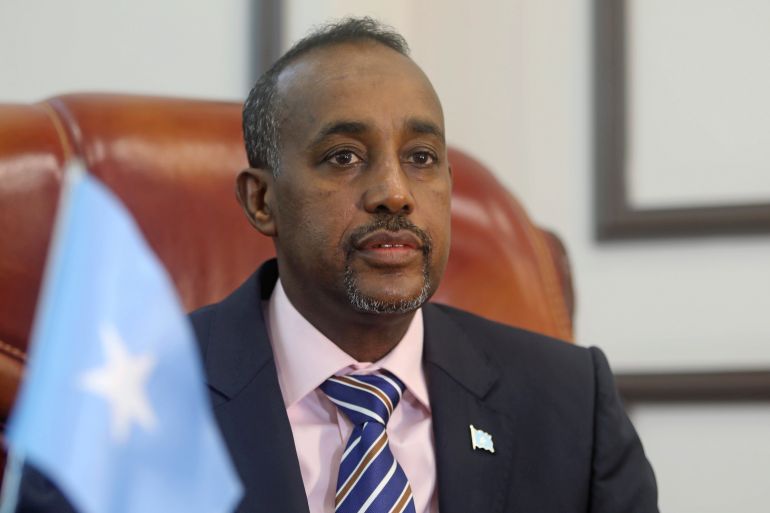Somalia’s leaders agree to hold delayed election by February 25
Repeated poll delays amid a feud between the president and the prime minister have alarmed the international community.

Somali leaders have announced they struck a deal to complete parliamentary elections by February 25, after repeated delays that have threatened the stability of the country.
The agreement on Sunday was reached after several days of talks hosted by Prime Minister Mohamed Hussein Roble with state leaders aimed at ending an impasse over the polls.
Keep reading
list of 3 itemsSomalia: Caught between drought and fighting
Somalia’s allies fear instability as political crisis deepens
“The ongoing election of the House of the People [lower house] will be completed between the periods of January 15 and February 25, 2022,” said a statement issued after the talks in the capital, Mogadishu.
Roble and Somalia’s President Mohamed Abdullahi Mohamed, better known by his nickname Farmaajo, have long been at loggerheads over the long-delayed elections, with fears their squabbling could erupt into violence.
The international community has voiced its alarm over the crisis, fearing for the stability of the country as it continues to battle a deadly armed uprising by the al-Shabab armed group.
The feud between the two leaders erupted again last month when Farmaajo suspended Roble, the man he had himself chosen as premier in September 2020.
But Roble accused the president of violating the constitution and of an “attempted coup” and defied the order, while Farmaajo himself faced calls by opposition leaders to vacate his office.
Farmaajo’s four-year mandate expired in February 2021, but was controversially extended by parliament in April, triggering deadly gun battles on the streets of Mogadishu, with some rivals viewing it as a flagrant power grab.
Roble then brokered a new timetable to a vote, but in the months that followed, the pair’s bitter rivalry derailed the polls again.
They agreed to bury the hatchet in October, and issued a unified call for the election process to accelerate.
But their clash spilled out into the open again when Farmaajo suspended Roble, accusing him of corruption for allegedly interfering in a probe into a scandal over army-owned land.
Elections in Somalia follow a complex indirect model, whereby state legislatures and clan delegates pick lawmakers for the national parliament, who in turn choose the president.